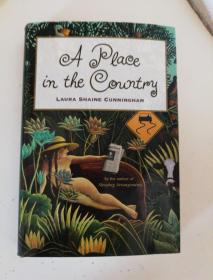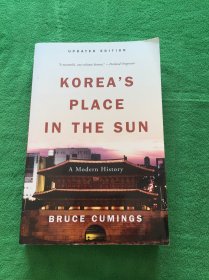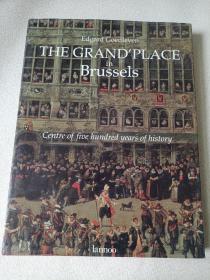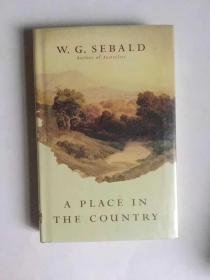
The“Place”in Chinese cultural geographies
正版保障 假一赔十 可开发票
¥ 64.68 6.6折 ¥ 98 全新
库存3件
作者朱竑
出版社中国科技出版传媒股份有限公司
ISBN9787030735904
出版时间2021-01
装帧平装
开本其他
定价98元
货号11968355
上书时间2024-10-27
- 最新上架
商品详情
- 品相描述:全新
- 商品描述
-
目录
Contents
Chapter 1 Introduction 1
1.1 The study of “place” in new cultural geographies 1
1.2 The outline of this book 3
Chapter 2 Creating and Defending Concepts of Home in Suburban Guangzhou 9
2.1 Introduction 9
2.2 Home, power and identity in suburban Guangzhou 17
2.3 Loss of home — local villagers outside the estates 28
2.4 Migrant workers — living on the margins 32
2.5 Discussions 34
References 36
Chapter 3 Living in the “Ghost City”: Media Discourses and the Negotiation of Home in Ordos, Inner Mongolia, China 39
3.1 Introduction 39
3.2 Background and methods 43
3.3 Discourse on “ghostly” Kangbashi 47
3.4 Residents’ experience of home in Kangbashi 49
3.5 Conclusions 56
References 58
Chapter 4 Restoration of an Ancestral Temple in Guangzhou, China: Reimagining History and Traditions Through Devotion to Art and Creation 61
4.1 Introduction 61
4.2 The changing role of ancient ancestral temples in modernizing China 63
4.3 Restoration of an ancestral temple in Guangzhou 64
4.4 Creating new cultural space and meaning for modern uses 67
4.5 Conclusions 69
References 70
Chapter 5 Investigating Urban Migrants’ Sense of Place Through a Multi-scalar Perspective 71
5.1 Introduction 71
5.2 Methods 78
5.3 Connecting migrants’ senses of place to Dadong Community
Cultural Center and Guangzhou City 84
5.4 Limitations 103
5.5 Conclusions 104
References 107
Chapter 6 Negotiating About Place and Identity After Change of Administrative Division 111
6.1 Introduction 111
6.2 Research background 114
6.3 Research methods 117
6.4 Between Dongshan and Yuexiu: Interrupted identities, ambiguous identities 118
6.5 Repacking place symbols, reimagining place identity 123
6.6 Conclusions 126
References 129
Chapter 7 Globalization and the Production of City Image in Guangzhou’s Metro Station Advertisements 132
7.1 Introduction 132
7.2 Study area: Globalizing Guangzhou under the market transition 136
7.3 Producing the image of a globalizing city 138
7.4 Conclusinons 149
References 151
Chapter 8 Between God and Caesar? Christianity, Ethnic Identity and the Resistant Politics in Shimenkan, China 155
8.1 Introduction 155
8.2 Hegemony, resistance and translocal hybridity as critical cultural resources 157
8.3 Research methods 161
8.4 Encountering Christianity: Early socio-economic transformation in Shimenkan 162
8.5 Annihilating the “other”: Pollard Script in state discourse and practice 168
8.6 New translocal dynamics and the production of the politicized Christian space 171
8.7 Conclusions 176
References 179
Chapter 9 Conclusion Remarks 183
内容摘要
“地方”研究近年来在人文地理学中呈现复兴态势,也正在成为新文化地理学研究的核心话题。《The “Place” in Chinese Cultural Geographies》关注“地方”,采用文化地理学的理论视角对广州郊区住宅与移民家园、鄂尔多斯“鬼城”体验、广州祠堂文化修复、广州地铁车站广告与城市意象、流动人口与其在城市中的定位等社会群体的区域议题进行了生动的分析。《The “Place” in Chinese Cultural Geographies》为作者团队多年来发表在SSCI刊物上的成果汇编,研究议题鲜活,图文并茂,可读性强。
精彩内容
“地方”研究近年来在人文地理学中呈现复兴态势,也正在成为新文化地理学研究的核心话题。《The “Place” in Chinese Cultural Geographies》关注“地方”,采用文化地理学的理论视角对广州郊区住宅与移民家园、鄂尔多斯“鬼城”体验、广州祠堂文化修复、广州地铁车站广告与城市意象、流动人口与其在城市中的定位等社会群体的区域议题进行了生动的分析。《The “Place” in Chinese Cultural Geographies》为作者团队多年来发表在SSCI刊物上的成果汇编,研究议题鲜活,图文并茂,可读性强。
相关推荐
-

A PLACE IN THE COUNTRY
九品承德
¥ 45.00
-

A PLACE IN THE CQUNTRY
八五品承德
¥ 30.00
-

KOREAS PLACE IN THE SUN
九品北京
¥ 120.00
-

Painting in The Place Maseum
八五品北京
¥ 333.00
-

IN THE PLACE OF COINCIDENCE
八五品衡水
¥ 280.00
-

the grand'place in brussels
九五品北京
¥ 1200.00
-

A Place In The Sun
八五品北京
¥ 27.80
-

A Place in the Country
九品扬州
¥ 270.00
-

Aging IN THE Right Place
九品北京
¥ 120.00
-

a,place,in,the,sun
九品廊坊
¥ 58.00
— 没有更多了 —















以下为对购买帮助不大的评价